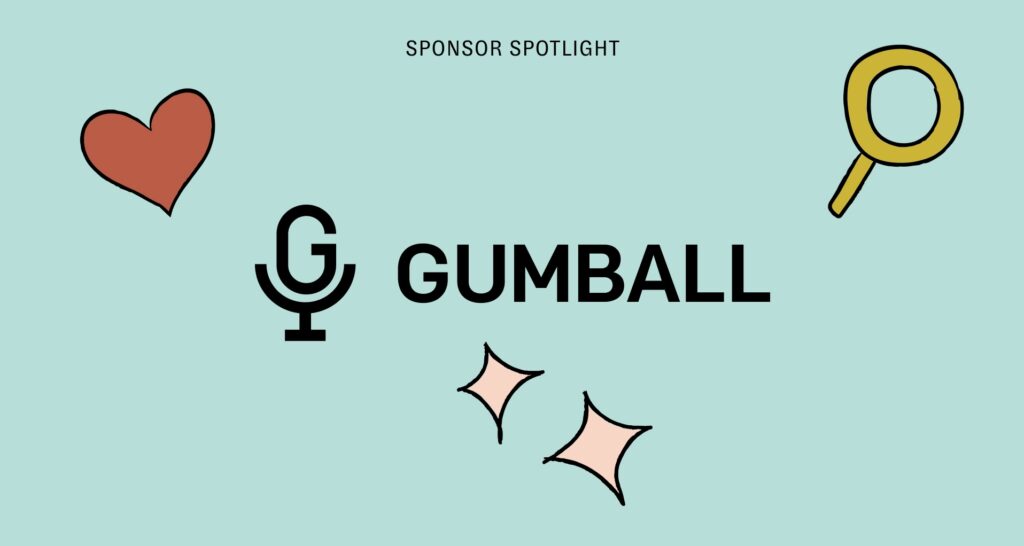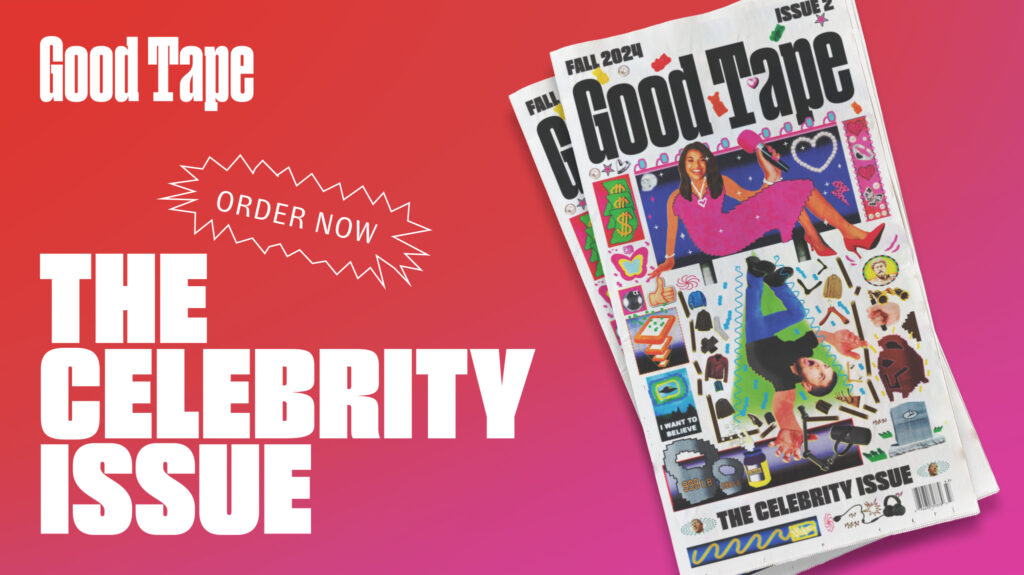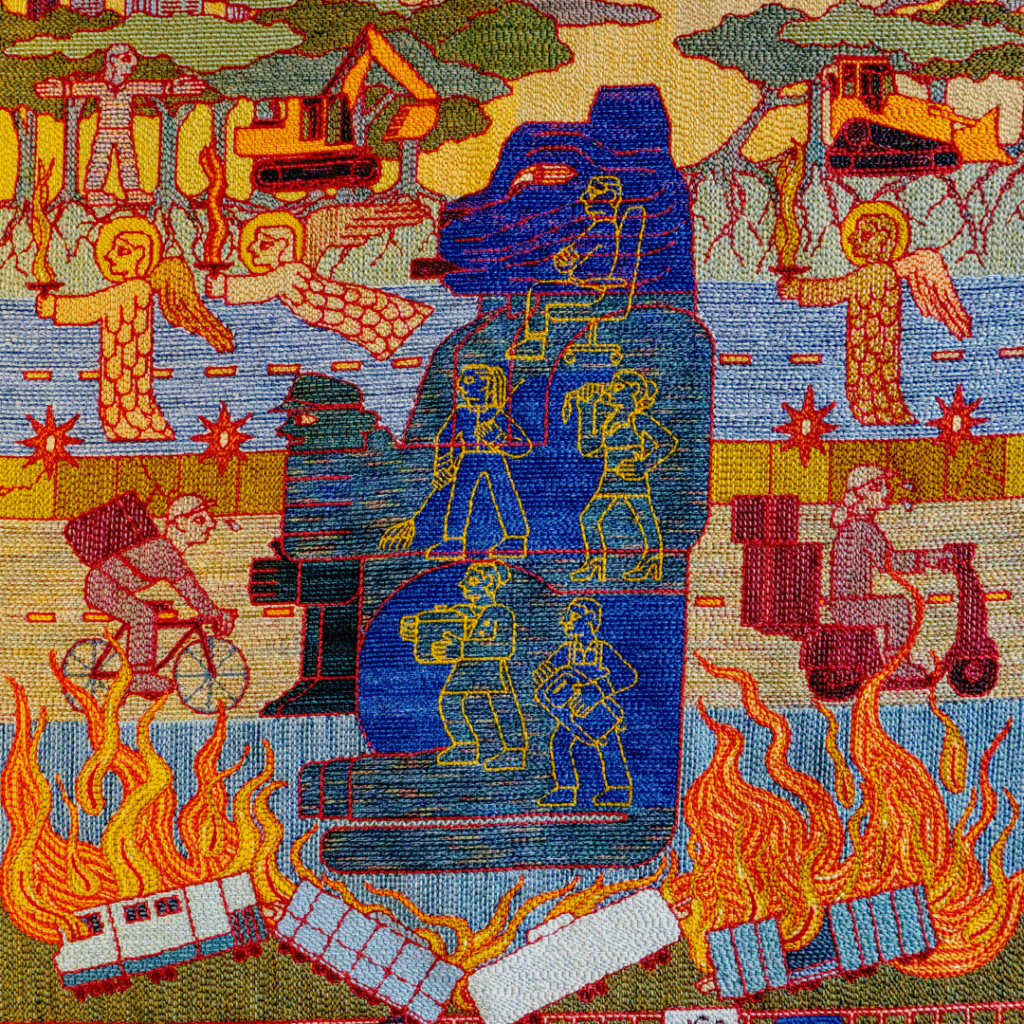Talking Dirty
“World domination.”
That’s porn star Kazumi’s deadpan response to No Chaser host Timothy Chantarangsu’s question, “Are you working on anything else?”
On the April 5th, 2023 episode of the dating advice podcast, Kazumi continues in her husky voice:
“I really want people to start questioning: why can’t sluts change the world?”
Kazumi’s social media feeds have just as many podcast promotional videos as lingerie pin-up shots. She’s built her brand on influencer content like a viral meme that made it look like she’d been kicked out of Harvard, and YouTube comedy videos where she plays games like “Smash or Pass” and “The Simp Olympics.” These posts intentionally direct traffic to her sources of revenue—membership sites OnlyFans and Fansly—and have led to an exclusive contract with the major porn production company Vixen, as well as a licensing deal with the iconic masturbation toy Fleshlight.
Clearly a marketing-savvy entrepreneur, one of Kazumi’s main strategies is appearing on as many podcasts as possible. Sex-themed shows like Guys We Fucked and My Dad Wrote a Porno, along with shows hosted by porn stars like Asa Akira and Blue Bailey, are a big deal in a digital media landscape that is increasingly hostile to anything tech companies consider X-rated. Kazumi refers to podcasting as a “survival tactic” in her line of work. “Sex workers know we will get deleted, shadowbanned, or otherwise have a harder time growing” their followings, she says. She tells me her accounts on Twitter, TikTok, and Instagram have been deleted numerous times, making podcasts one of the only mainstream avenues for building an audience.
The past five years have been a precarious time for sexual expression on the internet. In particular, two congressional bills collectively known as FOSTA-SESTA and signed into federal law by Donald Trump in 2018 expanded liability for websites that host user-generated content. Although the new law was supposedly intended to fight human trafficking online, many advocates in the sex worker rights and free speech movements protested that it does far more harm than good. According to FOSTA-SESTA’s detractors, its language defines trafficking too broadly; as a result, consensual activity between adults online can now be restricted, censored, and punished. Meanwhile, in 2021, the US Government Accountability Office reported FOSTA-SESTA has barely been used to prosecute actual trafficking cases.
In 2018, when FOSTA-SESTA had been passed by Congress but was not yet law, the mere threat of lawsuits caused many websites to preemptively resrict adult content. This is the reason you can’t post on Craigslist “casual encounters” or the r/escorts, r/Hookers, r/MaleEscorts, or r/SugarDaddy subreddits anymore. Other platforms like Instagram and Twitter have come under scrutiny for a practice known as shadowbanning, where algorithms deliberately suppress posts related to a variety of topics, including sex. This can have a frustrating, even devastating effect on those who make their living off of consensual, sex-positive entertainment and education for adults.

For pornographers, there are two types of media: there is “adult” and there is “mainstream.” Podcasting is considered mainstream because it’s less likely to be restricted as explicit, and therefore has a wider reach online. The sharability of mainstream media makes it the perfect crossover promotional tool for those who make their living off hardcore videos. Adult content producers can’t rely on internet virality, as most online platforms don’t allow what they deem “explicit content.” The definition of “explicit” is constantly shifting—from tits and ass, to solicitations like “link in bio,” to reclaimed words like “dyke” or “whore”—and is policed unevenly by platforms. Even as creators come up with new ways to keep their social content “appropriate,” sex educators, artists, and activists routinely find their posts or accounts, which are their key source of not only marketing but community, flagged by algorithms.
“After my first rodeo of pages getting taken down, I knew I couldn’t keep taking bikini pics to gain subscribers,” Kazumi says. Chatting on mic with mainstream influencers, as well as fellow porn stars who host their own shows, helps her to reach a broader audience. “This forces us to create whole brand personalities outside of sex work to survive in the social media sphere,” she continues. “I can talk about sex and keep my clothes on and gain more subscribers than just promoting my sexual content.”
On podcasts, Kazumi and other sex workers can talk obscenely about gang bangs, cunnilingus, and cuckold fetishists. But when they include clips on social media to signal boost an episode, they have to bleep out words like “sluts” and replace the word “porn” with a corn emoji. Even the word “sex” is codified as “seggs” so algorithms don’t suppress the posts. This awkward self-censorship is one of many strategies content makers use to sidestep being flagged, suppressed, or banned by algorithms for violating vaguely defined community guidelines.
But porn stars are adapting to use this censorship to their advantage: if you want to see the content that’s too freaky for social media, just step behind the paywall. On OnlyFans, they can be as visually vulgar as the terms of service allow (although even that is precarious, as evidenced by a 2021 debacle where the company announced, then quickly rescinded, a ban on adult content).
“Before OnlyFans, people had to depend on companies and agents to push their brand forward, and there wasn’t as much of an incentive to create an online presence yet,” says Kazumi. As the industry standard shifts from studio contracts to self-produced membership sites, fans are hungry for access to the inner lives of their favorite porn stars, including the time they’re supposedly not working.
Pornhub and other tube sites, along with advancements in streaming technology, have created a consumer expectation for unlimited free hardcore videos. The illicit thrill of going to the seedy VHS store or hiding magazines under your mattress has been replaced with a probing interest in the creator behind the content. Podcasts are the perfect medium for that authenticity marketing—even if it’s another kind of performance. Now, creators feel more pressure to incorporate their real personhood into their brand with Discord channels and Kick streaming profiles, or put more energy into creating another “private” layer to the public persona. “Now people can subscribe to you, and people have to connect with you,” Kazumi explains, “and that’s often by creating a parasocial relationship with your community.”
Fans tend to be more loyal to an artist when they feel they have a connection. But the internet is collapsing the borders that make those parasocial relationships with celebrities truly one-sided. Entitlement, boundary pushing, and abusive comments are increasingly commonplace in all kinds of online fanbases.
On one hand, the fact that fans want to know what their favorite adult stars like, and are like, is humanizing to a field that has always faced intense stigma and criminalization. On the other, it places more demands on pornographers to constantly blur the lines between what is public and what is private.
In this way, porn has gone through the same transformation as other creative fields: freelancing offers real liberation from the demands of the nine-to-five grind, while trading off the stability and protections of a company’s infrastructure.
Erotic photographer Holly Randall has been interviewing pornographers and other artists on her podcast Unfiltered since 2017. She echoes Kazumi’s sentiment that it’s not always easy making and distributing digital media about sex. “I still face a ton of discrimination for my show,” she says. “I’ve been denied access to recording studios, had my content removed or flagged on various social media platforms, and had guests refuse an appearance because of the association.”
Still, Randall says podcasting with porn stars is worthwhile because the conversational format helps to demystify sex work. “Of course, people like the ‘crazy sex stories,’ but I find I get the most feedback from the really humanistic stories—the ones that remind people that porn stars are often just like you or me,” Randall says. “Many of my listeners are surprised to find that adult performers can be intelligent, well-educated, funny, insightful, or inspiring. It’s unexpected, which is why it’s so engrossing.”
“As a publicist, I am forever chasing, contacting, and connecting with as many podcasts and their producers as I possibly can to promote my clientele.”
As more artists depend on digital media to direct traffic, adult industry publicists see hosting and guesting on podcasts as a crucial tool for growing their clients’ fanbases. Brian S. Gross, president of BSG Public Relations, which represents such adult industry legends as Joanna Angel (co-host of the podcast Just the Tips) and porn parody studio WoodRocket, tells me, “As a publicist, I am forever chasing, contacting, and connecting with as many podcasts and their producers as I possibly can to promote my clientele.”
In the 1990s, the porn standard was larger-than-life body types, and media promotion matched this with quick stunts on syndicated shows like Howard Stern. After 30 years in the industry, Gross thinks the longform conversation on podcasts are an improvement over the programming limitations of terrestrial or satellite radio. “The basic radio interview done on the morning show, while it might get a little salacious, ultimately ends rather quickly, so you don’t get the full experience of what the person would want to share with the audience,” he says. On podcasts, he explains, porn stars “are able to speak freely without a time constraint. They are able to engage in what has the potential to be a wild conversation that may go viral or attract other media.”
“When two people start to engage in certain topics and discussions, it opens the door for the performer or content creator to possibly let their guard down, talk about subjects that may be taboo or are of interest to the listener,” Gross goes on.
Randall agrees that podcasts can be an efficient and effective marketing strategy. “A one-hour podcast can give me 15 to 20 pieces of content that I can reissue in short form across various social media platforms, and so the traffic I’ve been able to pull on Instagram reels, for example, has exploded,” she says. “My social media platforms have seen a meteoric rise since I started posting clips from my podcast on them.”
But will podcasting always be a safe space for mature conversations? Under FOSTA-SESTA, any user-generated content, including podcast audio or even metadata attached to an MP3 on an RSS feed, could make a third-party host like Apple or Spotify vulnerable to lawsuits if they are deemed to promote trafficking.
At the moment, podcasting seems to be skirting the censorship issues faced by other types of digital media. Jason Kelley, the activism director of the Electronic Frontier Foundation, says that a lack of centralization in the online audio medium means for now, porn stars can talk dirty on mic.
“Google isn’t using ContentID and other tools on [podcasts],” Kelley explains, referring to the system of identifying copyrighted content on Google-owned user-generated content sites like YouTube. RSS feeds aren’t being scanned for terms of service violations like TikTok and Twitter. “If there was a monopoly over how to listen to podcasts, it would be over,” says Kelley, “but as long as ‘wherever you get podcasts’ is how podcasts are found, it’s bad for business to try to limit what you allow.”
Online content is not currently regulated by the FCC, which has a storied history of restricting profanity. Virtually anyone can log on to a podcasting app and publish or download trans memoir, raunchy observational humor, and adult industry politics: all subject matter that has been deplatformed on social media or continues to face scrutiny in physical libraries and at live events. However, the lesson of FOSTA-SESTA is that all it would take is a powerful politician to decide that podcast discussion of polyamorous dating, drag performance art, or decriminalization of prostitution is indecent, or promotes forced and illegal labor, for free speech in the audio space to be chilled.
For now, podcasting is a space for porn stars to express themselves while also doing the self-promotion that is necessary for their livelihood. When sex workers are at risk of losing that ability to speak freely about our jobs, other kinds of censorship are bound to follow. Hopefully, the humanizing aspects of longform podcast conversations contributes to a world where people respect adult entertainers as savvy businesspeople, provocative artists, and digital innovators.
If you watch the Instagram promotional videos for No Chasers you’ll see Kazumi’s face above a pixelated mess of squares which obscure her naked body. This isn’t the most original idea: “can you take her seriously with no clothes on?” But Kazumi is calm and upbeat; it’s the clothed hosts who look uncomfortable. She asks for their consent, strips, and then asserts again her message of “world domination”—that porn stars are “capable of doing anything.”
![]()
Tina Horn is the creator of the sci-fi sex-rebel comic book series SfSx and was the host and co-writer of the Wondery phone sex series Operator. Her new book—Why Are People Into That?: A Cultural Investigation of Kink (Hachette, 2024)—is based on her long-running fetish podcast of the same name.










